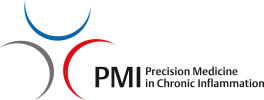© Pint of Science, 2026. Alle Rechte vorbehalten.
Join us on May 13th at Studio Kino for an evening of mind-bending presentations on cutting-edge scientific topics. Unravel the mysteries of Phage therapy, explore the nexus of technology improvement and adoption, and dive into the heartwarming tales of molecular cardiology. Whether you're a science enthusiast or a newcomer, there's something for everyone. Don't miss this electrifying start to Pint of Science!
Phage therapy and evolution-informed treatments: How can evolution help us with using viruses to kill bad bacteria?
Usually a bacterial infection will be treated with an antibiotic according to the bacteria that causes the infection. However, through mutations, bacteria can quickly evolve to become resistant to that antibiotic. When that happens, antibiotics are no longer effective and the worst outcome could be that the patient can’t be treated effectively. In recent years, antibiotic resistant bacteria have spread all over the world and became a major health problem (leading to over a million deaths in the world every year). One alternative proven to be effective is phage therapy. Bacteriophages or phages are viruses that can infect and kill bacteria. Bacteriophages have been used in hospitals to cure patients in some cases in a few countries around the globe. In her talk Lavisha will explain how this treatment works, how efficient and how safe it is. She will also discuss how evolution can be used to develop better treatments in the future.
The Nexus between Technology Improvement and Adoption - Up and Down we Go
Welcome to economic theory. Most production processes are linked to causing emissions. But due to the fact that people will always have to consume, the production of goods is unavoidable for our society. Therefore, one can think of an optimal compromise between pollution and production.
Now, better technology can be helpful to reduce emissions while producing the same level of output.
But what if the inventor of the better technology is a greedy monopolist and sells worse products for higher prices than optimal to maximize his own profits?
How can the government interfere to reach the best result for everyone without touching the “holy concept” of the free market?
Now, better technology can be helpful to reduce emissions while producing the same level of output.
But what if the inventor of the better technology is a greedy monopolist and sells worse products for higher prices than optimal to maximize his own profits?
How can the government interfere to reach the best result for everyone without touching the “holy concept” of the free market?
Home is where the heart is: stories of molecular cardiology
The heart is a fascinating organ that continuously pumps blood throughout the body. Upon prolonged pathological stimuli, the heart responds by increasing its size to compensate for the increased stress, leading to long-term heart failure. Cardiovascular complications affect millions worldwide; however, current treatment options tackle mostly amelioration of symptoms and do not blunt disease progression. In my talk, I will guide you through the exciting world of gene therapy and we will explore together ways of modeling heart disease in an experimental setup. While we are still at the beginning of proposing a therapeutic strategy, with each discovery, we are one step closer to a future in which heart failure is no longer the leading cause of death.
© die Mitwirkenden OpenStreetMap

